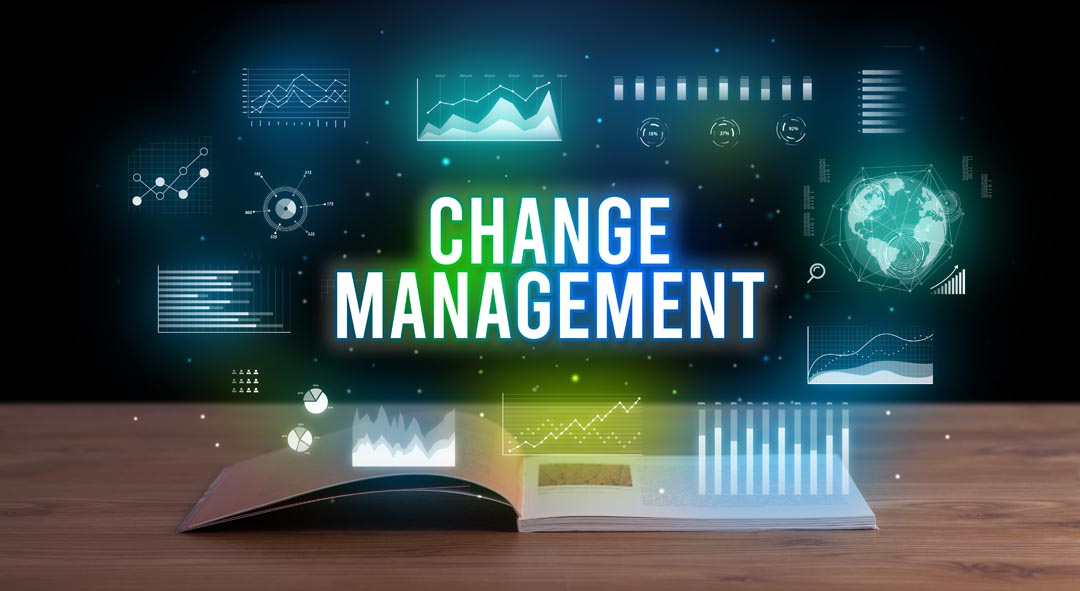Marek Szwejczewski, Steve Macaulay and Bob Lillis on the link between successful change and shifting skills, mindsets and attitudes
L&D and people professionals have long understood that organisational change is essential and inevitable today; but what are the key skills involved and when should they be deployed?
L&D professionals play a crucial role in developing the necessary skills at each stage of the change process
Insights were gleaned from research into planned change programmes that lasted 18 months to six years. The research was conducted within 16 organisations of between 50 and 55,000 employees, revealing key skills for sustainable change programmes:
• Organisations need to be prepared for planned change to secure robust outcomes.
• Skills evolve through the process: Different skills are crucial at different stages of change.
• L&D plays a key role: L&D professionals can guide and support successful change through to maturity by understanding these skills.
Essential skills throughout the change programme
• Leadership change skills
A major lesson gained from the research is clear – change leadership skills are not a one-time effort, but an essential, continuing force throughout the change process. The vision and goals created at the start must be continually repeated and kept current in communications.
• Ability to adapt implementation methods
The ability to employ different methods at different times as the programme develops is an essential skill. There is a wide range of choices: use of cross-function teams, pilot schemes, targeted use of deadlines, restructuring, change champions, use of external agencies, tailored reward systems and so on.
• Stickability
Sustaining change is not a short-term project but a long-term commitment. Group and individual training, coaching and mentoring will emphasise the importance of continuous improvement and the benefits of viewing change as an ongoing journey rather than a finite project.
By this, we mean the ability to keep going, remaining upbeat, continually communicating the benefits and not allowing change to peter out or become detached from the path ahead.
Essential skills to kickstart and sustain a programme
• Fostering stakeholders
Skills to build, foster and influence a set of stakeholders are essential from the beginning of the change process. Early key stakeholder engagement is central to sustained top-level support and successful implementation. Yet, the emphasis on skills needed to influence original stakeholders becomes less to the fore as the change programme proceeds. The focus needs to shift towards those charged with getting the job done.
• Political and influencing skills
Politics and influence within an organisation can either fuel or hinder the sustainability of change practices. Political acumen is important from the commencement of a programme. People professionals need to be adept at managing relationships to align required change with broader organisational interests. Rather like skills needed to foster the original stakeholders, sound political skills, still essential for successful change management implementation, become eclipsed by skills associated with implementation as the programme takes hold and progresses.
Skills emphasis as the change programme progresses
• Cultivating employee engagement
Employees need to feel part of the change programme, have their questions answered and understand where it is heading. Perhaps surprisingly, universal individual employee commitment from the word go is usually not the highest priority at the commencement of the change process; but becomes more and more influential as the programme progresses. Steps to secure universal employee engagement, not a top priority at the start, become crucial as the change takes shape.
At team and local levels, L&D should instigate plans that gradually enhance understanding amongst the employees of the vision and goals of the programme in practical terms, demonstrating alignment with the core values of the organisation.
• Effective managerial skills
Similarly, navigating the development of change practices as change reaches every part of the organisation means effective local and team managerial skills become increasingly influential in the programme. L&D professionals should develop programmes that equip managers with the skills needed to implement and sustain change practices. This requires adapting management styles to the evolving needs of the organisation and fostering a culture of continuous improvement.
Working within the framework of organisational culture
The skills needed to integrate change practices seamlessly are a vital aspect of making change stick. Sustaining a programme of change becomes an exercise in creating an organisational culture where adaptation and evolution are not occasional events but rather ingrained elements of your company’s DNA.
Cultural insight, analysis and adaptation should become an essential part of L&D skills as programme maturity progresses. Regular review must be accompanied by periodic adjustments as needed. One important way is to seek ongoing feedback from different parts of the organisation to identify what they plan to do next and what support L&D can provide.
This includes an assessment of the extent of improvement in employee engagement as well as any transformation taking place in managerial approaches and styles. People professionals can have a huge influence on developing an improved organisational culture by ensuring such successes and milestones are publicised and achievements celebrated.
Anticipating common change process mistakes
• Poor communication
Consistent, clear communication is vital. Use language everyone understands and relate it to their roles.
• Underestimating stakeholders
Secure buy-in from the start to avoid resistance. Actively engage, address concerns, and keep stakeholders informed.
• Unclear goals
Define desired outcomes clearly and optimise processes for effectiveness. Regularly evaluate progress and adapt as needed.
• Losing focus
Stay committed to original goals while adjusting methods to support the overall vision.
• Pressing too hard for employee engagement…
…before people know their leadership and stakeholders are fully behind the change and what it means. Employee engagement becomes progressively more prominent once the change is under way and a clear vision is established.
Conclusion
Successful change is tied in with changing skills, mindsets and attitudes within the organisation. L&D professionals play a crucial role in developing the necessary skills at each stage of the change process, ensuring that the change takes root to become sustainable.
Marek Szwejczewski is a senior lecturer at Management School, Sheffield University
Steve Macaulay is an associate of Cranfield Executive Development
Dr Bob Lillis is an operations management specialist




